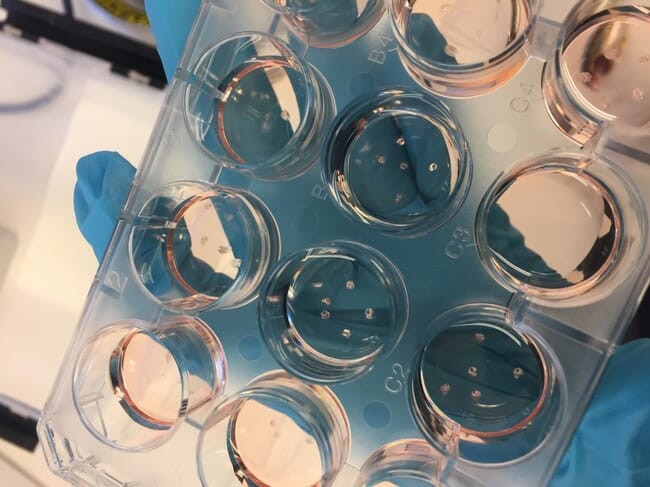Elisabeth Ytteborg, a fish health scientist at Nofima, has led a project developing tools to compare how stressful environments affect the external immune system of these three species.
The tools they have developed are in vitro models, which involve the cultivation of cells from various fish organs. Using these tools, the fish can indirectly tell the scientists how they tackle the challenges they face in a net pen, such as changes in temperature or chemical agents.
The prevalence of bacterial diseases may increase as a result of higher water temperatures caused by climate change. At the same time, the majority of farmed species in Norway do not thrive at high temperatures.

© Elisabeth Ytteborg, Nofima
“We need more knowledge about temperature and fish resilience. We can make real progress by using cell models,” said Ytteborg in a press release.
Nofima has been running the national cod breeding programme for 20 years, and the knowledge created should be transferred to other relevant species in Norwegian aquaculture.
“Climate change brings along new challenges related to fish health. This is a field that has so far been given little priority,” said Lill-Heidi Johansen, head of fish health in the national cod breeding programme.
“We need to improve our toolbox so that we are prepared to meet health challenges that may arise, including species other than cod and salmon,” added Johansen.
Nofima’s models will be used in research for the industry and will be further developed. Through the use of cell models, scientists can gain valuable information without using more animals in trials. In 2021, the Nofima scientists received Norecopa’s 3R animal research prize for this work on developing alternatives to animals in experiments.




